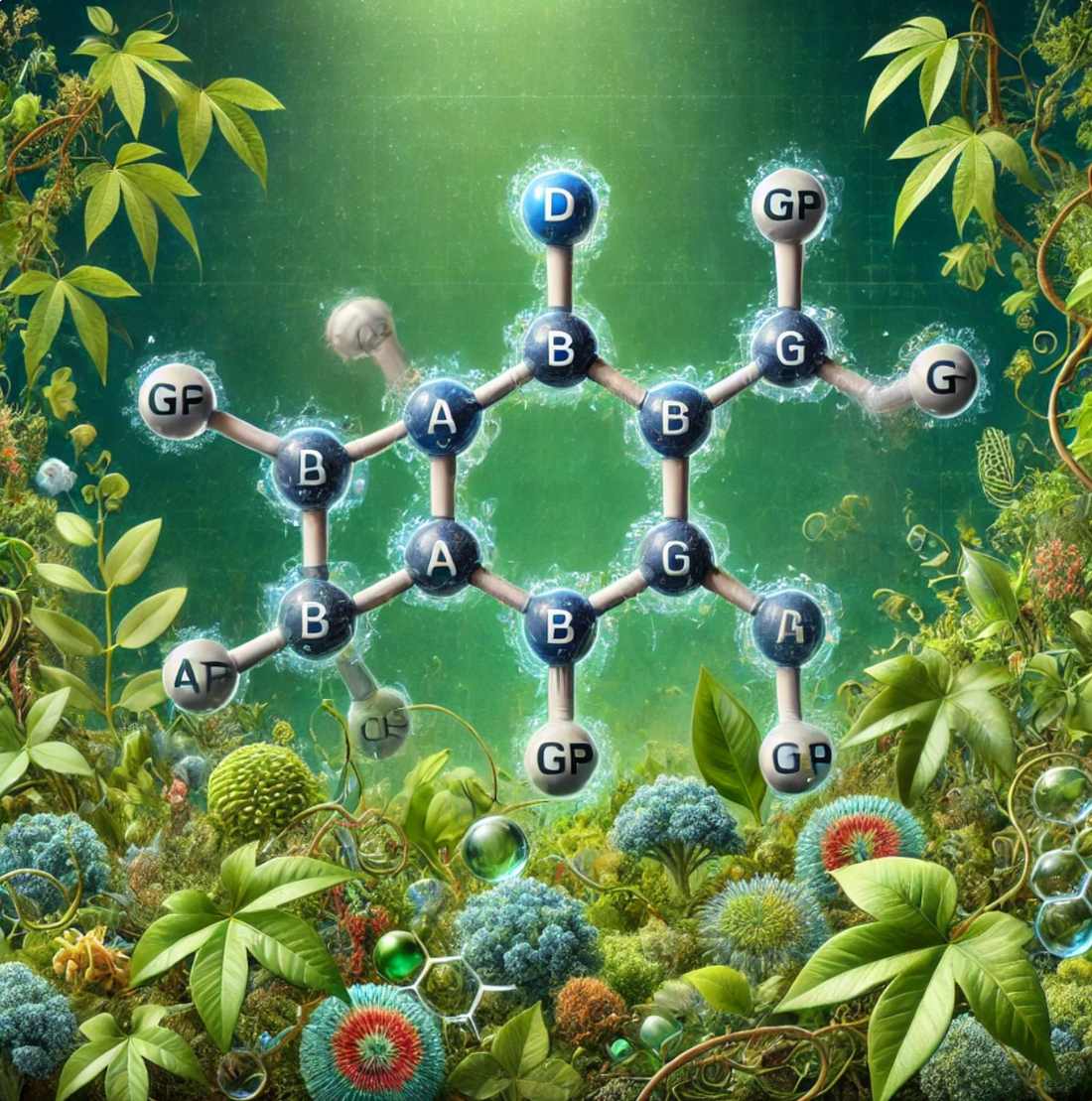
Understanding ATP in Plants and Its Connection to Soil Health
Share

Understanding ATP in Plants and Its Connection to Soil Health
Adenosine Triphosphate (ATP) is often described as the "energy currency" of life, essential for powering biological functions in all living organisms, including plants. In the world of plants, ATP plays a crucial role in driving key processes such as growth, nutrient uptake, and photosynthesis. But how does this energy molecule connect to soil health? In this article, we’ll delve deep into the role of ATP in plants and how its production is deeply tied to the health of the soil beneath our feet.
What is ATP in Plants?
ATP, or Adenosine Triphosphate, is a fundamental molecule that plants use to store and transfer energy. Every activity a plant undertakes—whether it’s photosynthesis, respiration, or nutrient transport—requires energy. ATP provides this energy by breaking down into ADP (Adenosine Diphosphate) and releasing a phosphate group in the process. This release of energy allows the plant to carry out essential functions, making ATP indispensable for plant life.
ATP and Photosynthesis
Photosynthesis, the process by which plants convert sunlight into chemical energy, heavily depends on ATP. During the light-dependent reactions of photosynthesis, light is captured by chlorophyll molecules and used to produce ATP and NADPH. These molecules then fuel the Calvin Cycle, where carbon dioxide (CO2) is converted into glucose, the plant's primary energy source. Without enough ATP, photosynthesis would slow or stop entirely, affecting the plant's ability to grow and thrive.
ATP and Nutrient Uptake
ATP is also vital for the process of active transport—the movement of water, nutrients, and minerals from the soil into plant cells. Active transport moves nutrients against a concentration gradient, requiring significant energy input, which comes directly from ATP. If the soil lacks proper nutrients, the plant may struggle to produce enough ATP to support this process. This connection underscores the importance of nutrient-rich soil for optimal plant health.
How Soil Health Impacts ATP Production in Plants
Soil health directly influences a plant’s ability to produce ATP. The availability of nutrients, the presence of beneficial microbes, and overall soil structure all play vital roles in determining how efficiently a plant can generate ATP.
1. Nutrient-Rich Soil Enhances ATP Production
Healthy soil that is rich in essential nutrients like nitrogen (N), phosphorus (P), and potassium (K) significantly boosts ATP production. These nutrients are involved in various metabolic activities, including energy transfer and photosynthesis. For example, phosphorus is a critical component of the ATP molecule itself. Without adequate phosphorus, plants struggle to produce sufficient ATP, which can result in stunted growth and poor yield. Ensuring that your soil is nutrient-dense can optimize ATP production and support healthy plant development.
2. Soil Microbes Boost ATP Efficiency
Soil teeming with **beneficial microbes** enhances nutrient availability, which directly supports ATP production. Microbial activity helps break down organic matter into simpler compounds, making nutrients more accessible to plant roots. This improved nutrient availability translates to higher ATP production. A classic example is the role of **mycorrhizal fungi**, which form symbiotic relationships with plant roots. These fungi extend the plant’s root system, improving its ability to absorb water and nutrients. In return, the plant provides carbohydrates, which are produced using ATP in photosynthesis.
Incorporating products like vermicompost or fermented plant extracts into your soil can further promote microbial life, ultimately enhancing ATP levels by improving nutrient uptake efficiency.
3. Organic Matter and Soil Structure
Soil rich in organic matter, such as compost or decomposed plant material, improves both soil structure and water retention. This healthy soil structure allows plant roots to access nutrients and water more efficiently, which in turn makes ATP-driven processes like active transport more effective. A well-structured, aerated soil helps maintain optimal root health, promoting robust ATP production.
Boosting Soil Health to Maximize ATP Production
Maintaining a healthy soil environment is essential for ensuring that plants can produce ATP efficiently. Here are several strategies to boost soil health and support ATP production:
1. Use a premium VermiCompost
High quality vermicompost is loaded with the nutrients and biology plants need for ATP production. By incorporating vermicompost into your soil, you not only replenish depleted nutrients but also improve soil structure and water retention. Products like **vermicompost** are particularly beneficial as they introduce microbes that aid in nutrient breakdown, thereby enhancing the plant's ability to produce ATP.
2. Start with a nutrient rich balanced soil.
For serious growers looking to maximize ATP production, our BioVast Potting Soil is an excellent choice. This soil mix is designed for No-Till, Raised Bed, and Living Soil growers, which prioritize a healthy microbial ecosystem. BioVast Potting Soil ensures your plants have the nutrients and beneficial microbes they need to optimize ATP production.
3. Utilize Cover Crops and Mulches
Cover crops and mulches can greatly improve soil health by protecting against erosion, enhancing organic matter, and promoting nutrient cycling. As cover crops decompose, they release vital nutrients back into the soil, which helps maintain high ATP levels in plants by ensuring a steady supply of the elements needed for energy production.
Conclusion
ATP is the energy powerhouse that drives plant growth, nutrient uptake, and photosynthesis. However, ATP production starts with healthy soil. Nutrient-rich, biologically active soil provides plants with the raw materials they need to produce ATP efficiently. By improving soil health through organic matter, beneficial microbes, and high-quality soil products like vermicompost and nutrient balanced soil , you can optimize ATP production and help your plants reach their full potential.